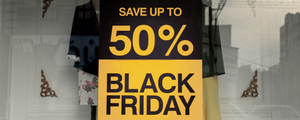With COVID-19, our lives have been thrown into the deep end. We have been forced to find ways to stay afloat, keep our anxieties at bay and keep loved ones fed and safe. Employers and staff have faced many trials and uncertainties recently. These uncertainties are job losses, loss in income, and salary cuts due to COVID-19 business restrictions. Many businesses have opened up again but have salaries done the same? Many have not. So how do you budget on a pay cut?
- Create that emergency fund. The main point of having an emergency fund is to assist you in providing for your immediate needs, without too much stress of where the money will come from. If you want to know more about creating an emergency fund we break it down for you in this article. You can create an ‘Emergency Fund’ savings goal on the Franc app, start depositing into your savings goal every month and watch it grow until your time of need. That said, if you already have one set up and really need to dip into it, that is what it is there for. And no, December holiday in Cape Town doesn't count!
- Create a new “skinny” budget. With new circumstances must come a new budget. Create a budget by noting down your income and expenses due for the month. To slim down your budget, remove any unnecessary expenses such as entertainment or e-hailing to places. And keep the ones that you cannot go without such as medical aid, life insurance, debt repayment, etc. Delete any subscriptions, avoid impulse shopping and spending, and prioritise saving more and adding money into your emergency fund. What is so cool about this is that you can almost maintain the same lifestyle with the skinny budget by using your emergency funds to pay for other important expenses without disrupting your life too much.
- Do not take on new debt. I know it’s tempting to hit up your local mashonisa or take a personal loan at the bank to supplement your loss in income. But by implementing the steps above, you may not need to do so. I know you are thinking: “But Fungile, the rate of borrowing in South Africa has gone down by like 3% so the interest I will pay on my skoloto will also go down moes”. Remember with a pay cut you already are tight on expenses and have experienced an even bigger percentage drop in salary compared to the drop in the repo rate. Taking on debt requires you to add debt repayment as another expense that you will have to start paying back using your skinny budget.
- Acknowledge the trauma of COVID-19. To acknowledge the emotional and financial trauma that COVID-19 has come with you should create a space of honesty about your finances with yourself and your family. Take some time out to have an open and honest conversation that things will not be the same financially but if everyone sticks together by budgeting and spending wisely, things will be okay.
Do not forget to find new ways to enjoy and experience our new world without spending an arm and a leg. This includes taking walks in the local park with your loved ones, doing arts and crafts at home, cook new and fun recipes and cocktails together, catch up on Netflix, get a new pet, etc. The list is endless and will definitely keep you entertained until your income is back on track.










